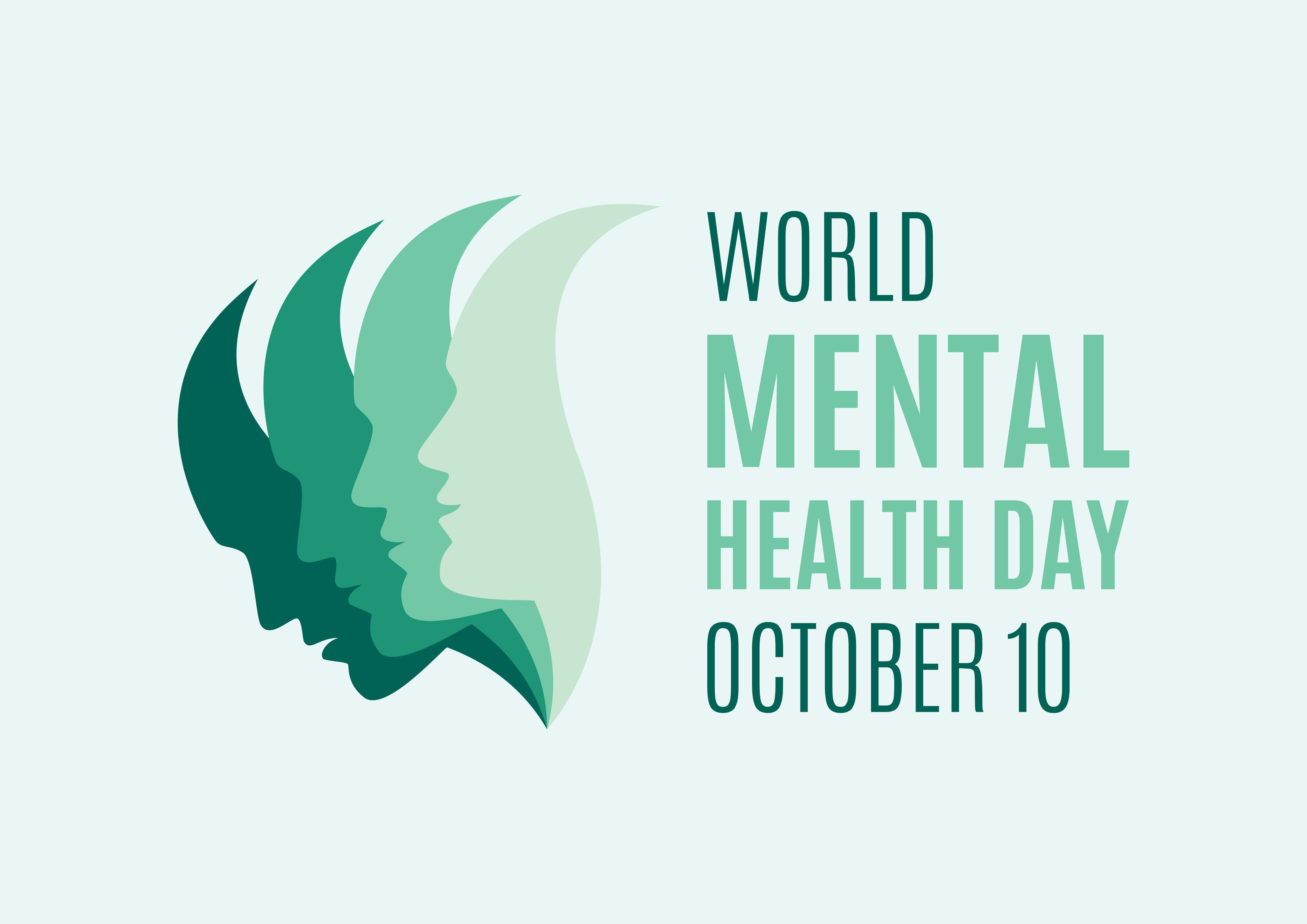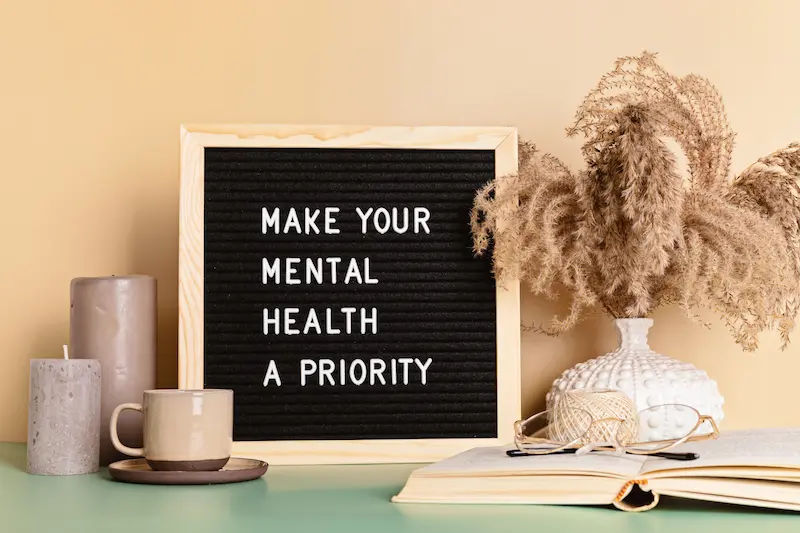Guide to Making Self Care a Priority
Discover practical tips to prioritise self-care, improve well-being, and maintain a healthy balance in your daily life.

Written by Dr. Rohinipriyanka Pondugula
Reviewed by Dr. J T Hema Pratima MBBS, Fellowship in Diabetes Mellitus
Last updated on 13th Jan, 2026

Introduction
In today's fast-paced world, the concept of self-care has evolved from a luxury to a critical necessity. Yet, for many, the idea of making self care a true priority feels indulgent, selfish, or simply impossible amidst endless to-do lists. This guide flips that script. We’re not talking about sporadic bubble baths, but about a fundamental shift in how you value your own wellbeing. Prioritising care for yourself is the foundation upon which everything else is built: your productivity, your relationships, and your long-term health. It’s the oxygen mask principle: you must secure your own before you can effectively help others. This article will provide you with a practical, holistic blueprint to move self-care from the bottom of your list to the very top, transforming it from an afterthought into a non-negotiable pillar of your daily life. Let's embark on this journey to sustainable wellness together.
Why "Self-Care Priority" is More Than a Buzzword?
The term "self-care" is everywhere, but understanding it as a priority changes everything. It moves it from a passive activity you do if you have time to an active, scheduled commitment to your own functioning.
The Real Meaning of Prioritising Care
Prioritising self-care means consciously deciding that your wellbeing is as important as your work deadlines, your family's needs, or your social obligations. It’s a form of self-respect. It involves recognising that you are your most important asset, and to perform at your best in all life domains, that asset must be maintained. This isn't about grandiose gestures; it's about the small, consistent daily choices that compound into significant well-being. It’s choosing a nutritious meal over fast food because you value your body's health, or setting a boundary to leave work on time to protect your mental space.
The High Cost of Neglecting Yourself
Ignoring self-care has tangible, severe consequences. Chronic stress without reprieve leads to burnout, a state of emotional, physical, and mental exhaustion. The American Psychological Association highlights that prolonged stress is linked to a weakened immune system, high blood pressure, anxiety, depression, and insomnia. When you constantly pour from an empty cup, you have nothing left to give to your job, your family, or yourself. The notion that pushing through exhaustion is a badge of honor is a dangerous myth. Making self care a priority is, therefore, not a selfish act but a strategic one for long-term resilience and effectiveness.
Consult a Psychologist for the best advice
The 5 Pillars of Holistic Self-Care
True self-care is multidimensional. Focusing on just one area, like physical health, while neglecting others creates an imbalance. A holistic approach ensures all aspects of your being are nurtured.
1. Physical Self-Care: More Than Just Exercise
This pilar involves caring for your physical body to ensure it runs efficiently.
Nourishment and Nutrition: This isn't about restrictive dieting. It's about fueling your body with what it needs to thrive. Hydration, balanced meals with whole foods, and mindful eating are all acts of physical care.
Sleep Hygiene and Rest: Quality sleep is the cornerstone of health. Prioritising 7-9 hours of sleep, creating a restful environment, and understanding that rest (like taking breaks) is productive are key. If you struggle with chronic insomnia or fatigue that impacts your daily life, consulting a doctor online with Apollo24|7 can help rule out underlying medical conditions.
2. Emotional and Mental Self-Care: Managing Your Inner World
This is about understanding, processing, and managing your emotions and thoughts.
Setting Healthy Boundaries: Learning to say "no" is a powerful form of self-care. It protects your time and energy from being drained by unreasonable demands, both at work and in personal relationships.
Practices for Stress Management: This includes activities like journaling to process emotions, practicing mindfulness or meditation, therapy, and engaging in hobbies that bring you joy and calm.
3. Social Self-Care: Cultivating Your Tribe
Humans are social beings. This pillar involves nurturing relationships that are supportive, positive, and energising. It also means distancing yourself from toxic connections that drain you. Scheduling time with friends who uplift you is a crucial self-care activity.
4. Spiritual Self-Care: Finding Purpose and Connection
This doesn't necessarily mean religion. It's about connecting with what provides you with a sense of purpose, meaning, and connection to the world. This could be through meditation, time in nature, volunteering, or practicing gratitude.
5. Practical Self-Care: Mastering Your Environment
This involves taking steps to reduce future stress and create a life that feels manageable. This includes organising your living space, managing your finances, creating routines, and meal prepping. Taking care of practical tasks prevents them from becoming overwhelming stressors later.
Your Blueprint: How to Make Self-Care a Non-Negotiable Priority
Knowing the "what" is useless without the "how." Here is your actionable plan.
Step 1: The Self-Care Audit - Identifying Your Needs
Take a week to observe your life. Where do you feel drained? What activities energise you? Use a journal to track your mood and energy levels. This audit will reveal which pillars of self-care you are neglecting and need to prioritise.
Step 2: Scheduling and Ritualizing Your Care
The most effective way to make something a priority is to schedule it. Block out time in your calendar for self-care activities as you would for an important meeting. Start small; even 15 minutes a day dedicated to reading, a walk, or meditation can make a difference. Consistency trumps duration.
Step 3: Overcoming Guilt and Internal Resistance
This is the biggest hurdle. Reframe your thinking: self-care is maintenance, not indulgence. You cannot show up as your best self for others if you are running on empty. Remember, by prioritising your care, you are ultimately enhancing your ability to care for others.
Beyond the Basics: Advanced Self-Care for Sustained Wellbeing
Once you've mastered the fundamentals, you can explore deeper practices.
The Role of Professional Support
Sometimes, self-care means recognising when you need help. Talking to a therapist or counsellor is a profound act of self-care. If you find your low mood or anxiety is persistent and difficult to manage on your own, consulting a therapist via Apollo24|7 can provide you with professional tools and support. Furthermore, understanding your physical health is key.
Digital Detox and Mental Decluttering
In our hyper-connected world, advanced self-care involves consciously unplugging. Designate tech-free hours or days. Curate your social media feed to include positive, inspiring content. This declutters your mental space and reduces comparison and anxiety.
Conclusion
Making self care your top priority is the most important investment you will ever make. It’s a journey of shifting your mindset from one of constant output to one of sustainable renewal. By understanding the holistic nature of self-care, auditing your needs, and deliberately scheduling time for your wellbeing, you build a foundation of resilience that supports every other aspect of your life. Remember, this isn't a one-time task but a continuous practice of checking in with yourself and making adjustments. There will be days you falter, and that's okay. The goal is progress, not perfection. Start today by choosing one small act of care for yourself. You deserve to thrive, not just survive.
Consult a Psychologist for the best advice
Consult a Psychologist for the best advice

Dr. Jinesh Shah
Psychiatrist
20 Years • MBBS, MRCPsych (UK), CCT in Adult Psychiatry (UK), CCT in Child and Adolescent Psychiatry (UK), PG Diploma in Clinical Psychiatry (UK), Cert Hypnotherapy (UK).
Ahmedabad
Apollo Speciality hospital, Ahmedabad, Ahmedabad
(150+ Patients)

Ms. Tanvi Nair
Psychologist
5 Years • Masters in Science - Clinical psychology
Bengaluru
Apollo Clinic, Sarjapur Road, Bengaluru

Ms. Moumita Ganguly
Psychologist
13 Years • B.ED(Special) Visual Impairment , PG.Diploma in Rehabilitation psychology
Kolkata
M’s Clinic, Kolkata
(150+ Patients)

Mr. Kiran S Sawekar
Clinical Psychologist
10 Years • Master of Science (M.Sc.) in Psychology (Clinical), Master of Philosophy (M.Phil) in Psychology
Bengaluru
Apollo Medical Center, Marathahalli, Bengaluru
Ms. Aleena Babu
Clinical Psychologist
5 Years • M.Sc Clinical Psychology
Bengaluru
Apollo Clinic, Sarjapur Road, Bengaluru
More articles from Mental Health
Frequently Asked Questions
1. I'm too busy; how can I possibly find time for self-care?
This is the most common barrier. The key is to redefine self-care not as a time-consuming luxury but as micro-activities integrated into your day. It can be a five-minute breathing exercise between meetings, choosing a healthy snack, or listening to an uplifting podcast on your commute. It’s about quality and consistency, not quantity.
2. Doesn't prioritising myself make me selfish?
Absolutely not. Think of the safety demonstration on an airplane: you must put on your own oxygen mask before assisting others. Self-care is that oxygen mask. By ensuring your own well-being, you ensure you have the energy, patience, and health to be truly present and supportive for the people you care about.
3. What's the difference between self-care and just being lazy?
Intent is the differentiator. Self-care is an active, conscious choice to engage in an activity that replenishes your energy and health. Laziness is a state of passivity and avoidance. Self-care leaves you feeling refreshed and recharged, while avoidance often leads to guilt and increased anxiety.
4. I don't know what I need. Where do I start?
Start with a self-care audit. For a week, simply notice your energy levels and moods. When do you feel drained? What activities give you a boost, even a small one? Your body and mind will give you clues. Often, starting with the most basic physical needs, hydration, a short walk, and an early night is the most effective way to begin
5. How do I deal with people who don't respect my self-care boundaries?
Be clear and consistent. You do not need to over-explain or justify your boundaries. A simple, 'I'm not available at that time,' or 'I need to prioritise my health right now,' is sufficient. People will learn to respect your boundaries when you consistently respect them yourself.




